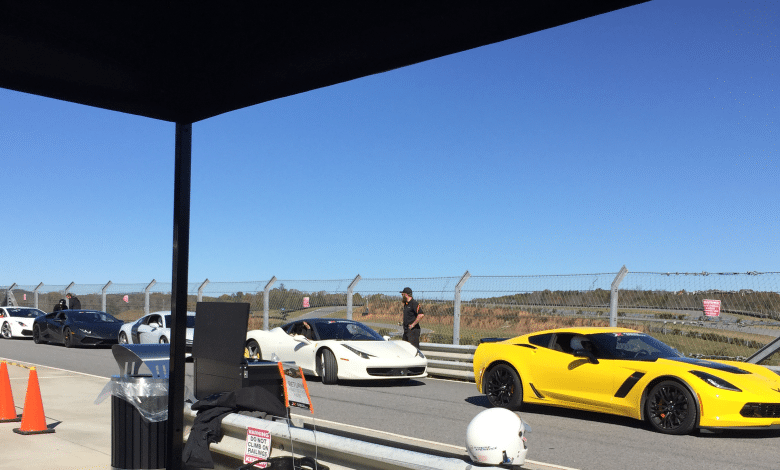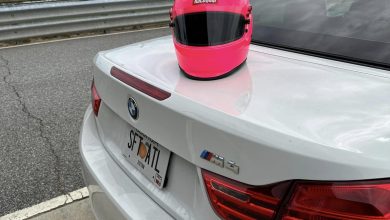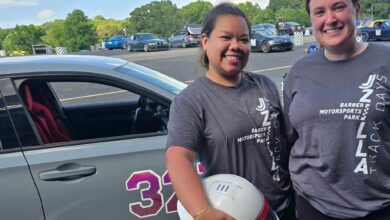
At ShiftAtlanta one of our number one missions and goals is to help demystifying being a car enthusiast, particular when it comes to getting out and doing more with your car. One area we find is always confusing is terminology. We’ll admit we’ve been guilty of being a little casual with our terminology sometimes too.
In this blog article we are going to attack terminology and phrasing around getting on track. If you are first timer, or just getting back into it after a number of years, you’ve likely noticed the explosion of events held at your local track. We think this is fantastic because the offerings and opportunities to get on track as a enthusiast has never been better.
We are particularly excited to see the trend away from all track events occurring only on the weekends. I don’t think it’s ever been as easy as it is right now to get on track mid-week.
With the growth in events has come the use, or overuse, of terms describing what these track events have to offer. There are some standard terms that could be used to help you understand what you’ll get out of these events. But these terms can be misused, or used incorrectly. So we’re going to do our best to help you understand what they mean, what to do expect, and how they may be slightly reused. Our goal, if nothing else, is to help you know what questions to ask.
High Performance Driver Education (HPDE)
HPDE is one of the most common terms you’ll see used, and the original term is High Performance Driver Education. While most track days (we’ll talk about this below) offer instruction and therefore qualify as HPDEs, they were not intended to be completely interchangeable terms.
A key component to HPDE is that they offer more than just a safety briefing. They should include actual instruction and education. For beginners this likely includes the basics of driving a racing line or how to identify and hit an APEX. For intermediate drivers it likely includes improving consistentcy, targeting areas like brake zones and other techniques that ensure consistent but improving lap times. For advanced drivers, HPDE likely focuses on advanced driving techniques like heel toe and trail braking.
What your event teaches specifically will likely vary. But the important thing is when an event describes itself as an HPDE, there should be active instruction and education. Instruction generally won’t be dedicated as in an instructor per driver, particular at the more advanced levels, but you will should access to instructors. Even for novices, you’ll likely have to do at least a few laps following an instructor who is communicating via a radio or riding in your right seat.
Examples of HPDEs include: SCCA Track Night In America, Atlanta Driving Society, JZilla Track Days, Chin Track Days and most mainstream event operators.
Track Day
While HPDEs can be track days, not all track days are HPDEs. This term is probably the most popular description for events. While calling an event a track day does not mean it isn’t an HPDE, if an event doesn’t specify instructors or HPDE, we recommend you ask prior to registering if you are looking for instructional components.
One area a true, non-HPDE, track day differs is that they are generally open run all day events. Track operators will likely provide some basic driver safety instruction and rules, but otherwise monitor the event rather than actively educate at it.
Another area where Track Days often differ from HPDEs is passing. While both generally utilize point by passing, true Track Days generally are more liberal with passing rules. HPDEs, with a focus on instruction, may limit passing not to just certain areas, but even not allow passing for some classes in the early part of the day. Track Days generally operate on the same passing rules all day, with maybe some additional limits for beginner classes.
We don’t generally recommend true track days for beginners. The education part for new drivers is important for safety and to develop good habits on track.
For more experienced drivers, track days are a great way to unburden from a lot of the high formality structure and just let you get out and drive. You can work on your driving at your pace. With the number of digital tools to help you improve you driving and laps times, as well as video playback, you can even create your own driving instruction plan.
If you are a member of a driving club like Road Atlanta’s Drivers Club or a member of Atlanta Motorsports Park, those member days operate effectively as Track Days.
Car Control Clinic
Car Control Clinics are a great way for intermediate and advanced drivers to further elevate their abilities. While car control clinics are generally done at tracks, they are usually not focused on driving laps. Rather they combine a series of techniques to help you learn advanced driving, car feedback and how to find the limits of your car.
Car Control Clinics usually will mix some combination of off track, skid pad and on track experiences. It’s also very common for car control clinics to provide the car – anything from a street car to a spec entry level race car. Other operators will have you do the car control clinic in your own car.
What’s important to know is when signing up for a car control clinic expect more instruction than even an HPDE or track day, and less focus on laps. But don’t think this isn’t a worthy experience. The best drivers have as much focus on car control as they do lines.
Time Trials
Time Trials, sometimes known as Time Attack, are on the opposite extreme from HPDE. There is little to no instruction and you are expected to be an advanced driver. In some instances, you are even required to have specific safety equipment and gear in the car.
Time Trials are intended to provide the opportunity for competitive driving without the need for side by side racing. This keeps costs down and safety up. It’s a great way to measure your driving skills against other drivers. It’s even better when you are in classes with like cars, where the drivers individual skill will stand out.
Another thing about most Time Trials is that you likely get a lot fewer laps. The need to limit the number of cars on track means the economics are different than a track day.
Finding A Track Day
Now that we’ve explained the different terms, if you are looking for a track day, HPDE or car control clinic, we have a handy calendar with a list.
See All Atlanta Area Track Days
Search By Track (i.e. Road Atlanta, Atlanta Motorsports Park)
Search By Popular Track Day Company (partial list)
Donât have the kind of life where you can only do special events on the weekends, or want sometimes just want to save a few bucks. Track Day operators are now offering mid-week track days.





